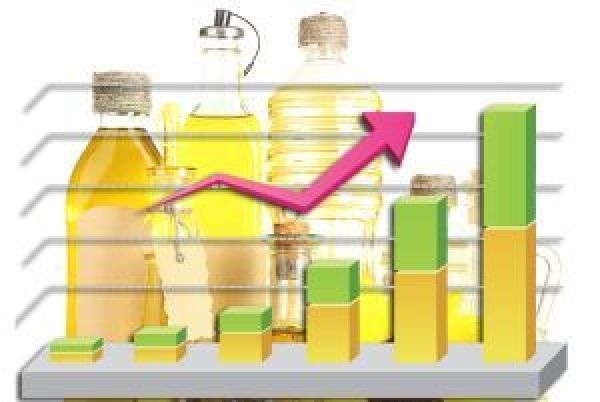India canceled duty-free imports of sunflower oil, which will reduce demand for it, and soybean oil immediately rose in price

The Indian government has decided to cancel the duty-free import of 2 million tons of unrefined soybean oil and impose a tax of 5.5% on it from April 1 to support local oilseed producers.
The decision on the duty-free import of 2 million tons of sunflower oil was made in May 2022 as a result of a reduction in supplies from Ukraine and the Russian Federation and a sharp rise in world prices. It was planned that this quota would remain in effect in 2023/24 MY, however, sunflower oil prices unexpectedly fell to the level of palm oil prices, but the increase in supplies did not occur due to problems with exports from Ukraine.
In January, India waived duty-free imports of unrefined soybean oil in the new fiscal year (from April 1), amid a new decision that will lead to increased imports of palm oil, for which duty-free import quotas were not introduced.
India buys sunflower oil from Ukraine and the Russian Federation, soybean oil from Argentina, Brazil and the USA, and palm oil from Indonesia, Malaysia, and Thailand.
Blocking the operation of the grain corridor limits the supply of products from Ukraine to world markets, especially distant ones. As a result, sunflower oil prices on the export market in January-February were the lowest since November 2020.
For September-January 2022/23, Ukraine reduced sunflower oil exports compared to the same period of the previous season by 14% to 2.28 million tons, in particular to India - by 54%, China - by 36%, Iraq - by 32%. At the same time, exports to the EU increased by 19% to 1 million tons, and the share of EU countries in the import of Ukrainian sunflower oil increased from 32% to 44%. Ukraine remains the leader in the supply of sunflower oil to the EU, providing 85% of imports.
India is the world's largest buyer of vegetable oils and imports 60% of its annual consumption of 23-24 million tonnes. It is forecast to import 14.5-15 million tonnes of vegetable oils in FY 2022/23, the highest since FY 2019/20 , as the demand for oil has returned to the "pre-Virus" period. The import of palm oil may amount to 8.5-9 million tons, soy oil - 3.5 million tons, sunflower oil - 2.5 million tons.
After two years of low imports, India increased its purchases of vegetable oils to 14.03 million tonnes in FY2021/22, but the war in Ukraine pushed up prices and reduced demand, but large reserves came in handy. Currently, they reach 3.5 million tons, while last year they amounted to 1.8 million tons.
Difficulties with exports from the Black Sea ports do not bother Indian buyers, as they have increased oil supplies from Russia, which instead of Europe has redirected supplies to India and China.
India imported 4.75 million tonnes of vegetable oils in the first quarter of FY2022/23 compared to 3.61 million tonnes in the same period a year ago.
Own production of vegetable oils in FY 2022/23 will reach 10 million tons (USDA forecast 9.16 million tons), compared to 8.77 million tons in FY 2021/22.
If some high-profile events do not worsen the state of the world economy, then the prices will remain stable in the coming months, according to the Solvent Extractors' Association of India. - Domestic oil prices are minimal, so the government will probably have to support farmers and introduce an import duty on palm olein. Currently, palm oil from Malaysia and Indonesia is the cheapest in the Indian market, as restrictions on its import were lifted in 2021 to reduce food inflation.
The import duty on RBD palm olein is 12.5%, and oil refineries, suffering from low capacity utilization, are asking for the duty to be raised to 20%.


